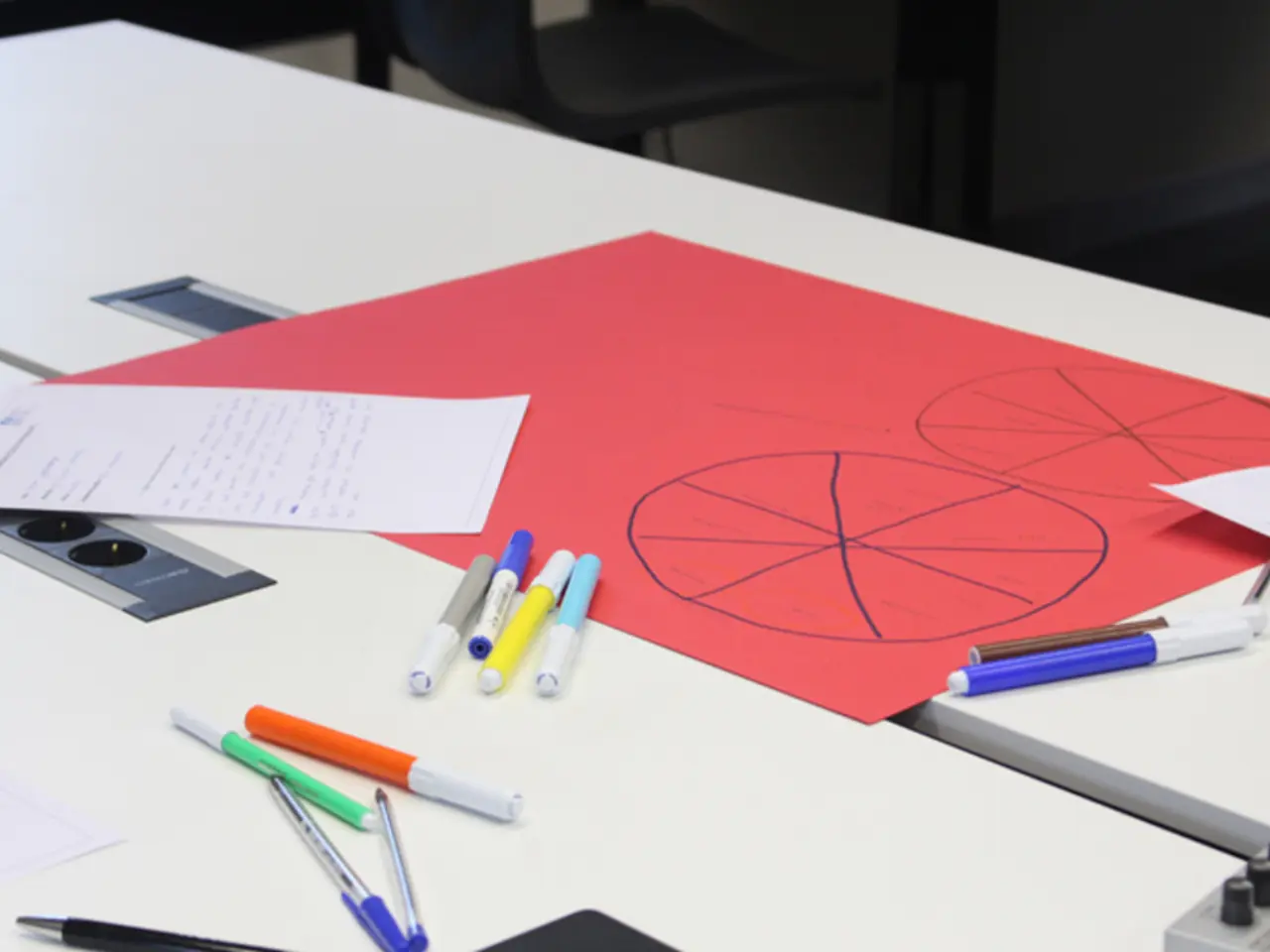Strategies to Overcome ADHD-Related Procrastination: Useful Tips
In the world of Attention Deficit Hyperactivity Disorder (ADHD), procrastination can be a significant challenge. A study in the Journal of Applied Developmental Psychology (Green & Myerson, 2014) found that sticking to a daily routine can boost task performance in people with ADHD.
One way to establish a routine is by using apps like Forest. Forest encourages focus by growing a virtual tree for every work session completed, and losing the tree if the user leaves the app. Another useful tool is Todoist, a task management app that allows users to sort and prioritize their tasks with features like calendar integration and project sharing. The Eisenhower Box, a method for prioritizing tasks based on their urgency and importance, can also help ADHD individuals decide what to focus on first.
Procrastination in ADHD is often caused by executive function deficits, which are mental processes responsible for planning, organizing, and getting tasks done. Task Initiation Problems, where starting a task is difficult, is another factor contributing to procrastination. Using visual reminders, such as sticky notes or whiteboards, can aid in task initiation and follow-through for individuals with ADHD.
Impulsivity, the tendency to be easily distracted by more exciting activities, is another factor contributing to procrastination in ADHD. The Pomodoro Technique, a time management method that involves working in 25-minute intervals with 5-minute breaks, can help maintain focus and productivity. Habitica gamifies task completion, encouraging users to level up and earn rewards for staying productive, which can help combat impulsivity.
Cognitive Behavioral Therapy (CBT) has shown promise in controlling ADHD symptoms and related procrastination. Delivered by a licensed therapist, CBT can help identify and shift procrastination-related thoughts and improve confidence, self-regulation, and productivity in people with ADHD. When procrastination is linked to anxiety or perfectionism, CBT’s focus on reframing and breaking cycles of avoidance is particularly beneficial.
Other helpful strategies include conducting a daily brain dump of thoughts and tasks to organize and reduce overwhelm; using movement breaks between tasks to refresh focus; setting timers; reducing visual clutter; color-coding schedules for prioritization; and leveraging reminders or calendar notifications to keep track of deadlines.
If procrastination significantly impacts daily life and is accompanied by other mental health issues like anxiety or depression, seeking professional help may be necessary. Installing AI-powered tools can help with better mental health, habits, and happiness, with 90% of users reporting positive changes in 2 weeks. Setting achievable goals and practicing self-compassion can help address perfectionism, the fear of not doing something perfectly, which can lead to avoidance of tasks altogether in people with ADHD.
In summary, combining ADHD-friendly organizational tools with emotional self-management strategies and professional CBT creates a comprehensive approach to reducing procrastination driven by ADHD. A balanced daily routine, including work, relaxing breaks, and leisure time, can also help manage procrastination. By understanding the causes of procrastination in ADHD and implementing these strategies, individuals can take control of their productivity and achieve their goals.
[1] Green, M. F., & Myerson, J. (2014). Daily routines in ADHD: A review of the literature. Journal of Applied Developmental Psychology, 35(1), 32-40. [2] Faraone, S. V., & Tannock, R. (2005). The neuropsychology of ADHD: A review. Neuropsychology, Development, and Cognition, 13(3), 133-148. [3] Barkley, R. A. (2014). Taking charge of ADHD: The Complete, Authoritative Guide for Parents. Guilford Press. [4] Safren, S. A., Daughters, S. R., & Reis, S. H. (2008). A cognitive-behavioral treatment for adult ADHD and comorbid perfectionism: A pilot study. Behaviour Research and Therapy, 46(12), 2312-2320. [5] Safren, S. A., Daughters, S. R., & Reis, S. H. (2008). A cognitive-behavioral treatment for adult ADHD and comorbid perfectionism: A pilot study. Behaviour Research and Therapy, 46(12), 2312-2320.
- Incorporating mindfulness practices into a daily routine, such as meditation or deep breathing exercises, can help individuals with ADHD manage stress, improve focus, and enhance overall mental health.
- Science suggests that mental health-and-wellness apps, like Headspace and Calm, can be beneficial for people with ADHD by providing strategies to reduce stress, practice mindfulness, and improve sleep quality.
- To combat perfectionism and the fear of failure that can contribute to procrastination in ADHD, focusing on the process rather than the outcome, and acknowledging progress towards goals, can be helpful for promoting productivity and mental well-being.




